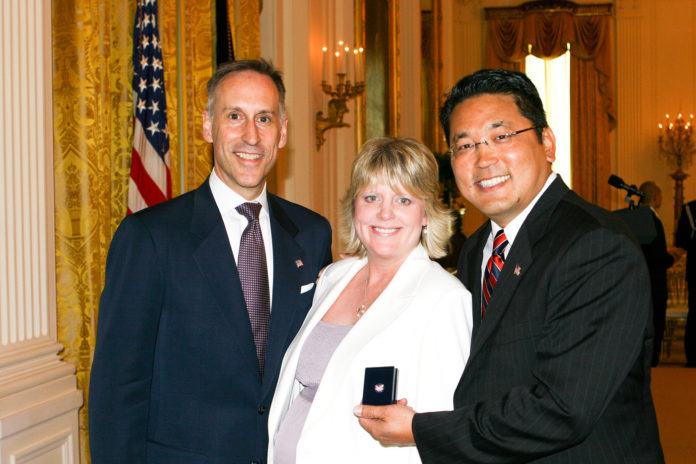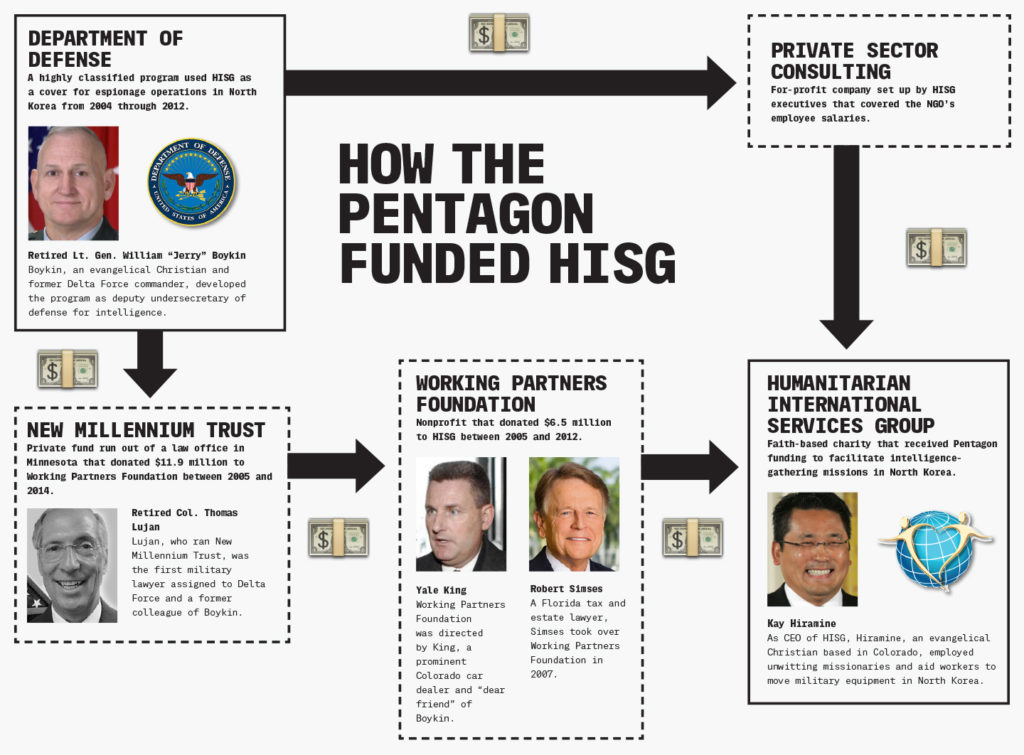
Using an NGO as a facade to penetrate otherwise inaccessible nations is the latest revelation by The Intercept’s Matthew Cole, as he discusses Pentagon agenda. Kay Hiramine, founder of multi-million dollar NGO Humanitarian International Services Group, or HISG, received an award in late 2007 for his aid in Hurricane Katrina. But what most didn’t know at the time was that he was a Pentagon spy working under a guise of his NGO funded by the U.S. defense department.
The highly classified task was said to be born during the Bush administration years with the help of Lt. Gen. William “Jerry” Boykin, a senior Defense Department intelligence official who had served as a commander with Delta Force. The ruse of the NGO was to seek ways to penetrate a difficult North Korea.
Dismantled in 2013, the act of using any NGO, even for the U.S. has surprised spectators. Several high ranking officials and military personnel came forward to discuss military and intelligence matters with The Intercept on the proviso of anonymity.

How It Works, Source: The Intercept
Sam Worthington, president of InterAction, an association consisting approximately of 200 American NGOs discussed his take on the violation of principles the U.S. has displayed. “It is unacceptable that the Pentagon or any other U.S. agency use nonprofits for intelligence gathering,” he said. “It is a violation of the basic trust between the U.S. government and its civic sector.”
The NGO over time infiltrated North Korea in 2007 and 2010 through coordinating humanitarian shipments of donated clothing for the harsh winters experienced there. Under the spoofed aid, Hiramine was tasked to find routes for moving military equipment, what the military refers to as “operational preparation of the environment;” gathering if intelligence and “prepositioning equipment inside a country for future conflicts,” writes Cole.
Rep. Jan Schakowsky said she was unaware of the program when she served on the House Intelligence Committee; commenting on the unwitting aid workers, she questioned the repercussions for others unknowingly involved. “Now we have people who have been hired to do some good work and become unwitting accomplices to an intelligence mission? They can face all kinds of retaliation. It is completely unacceptable,” she said.
How deep other clandestine intelligence projects reach, no one will know in the short-term. The dismantled HISG project in 2013 only sheds light on how far the Pentagon is willing to go.
This Article (Pentagon Used NGO to Infiltrate North Korea) is a free and open source. You have permission to republish this article under a Creative Commons license with attribution to the author AnonWatcher and AnonHQ.com.




